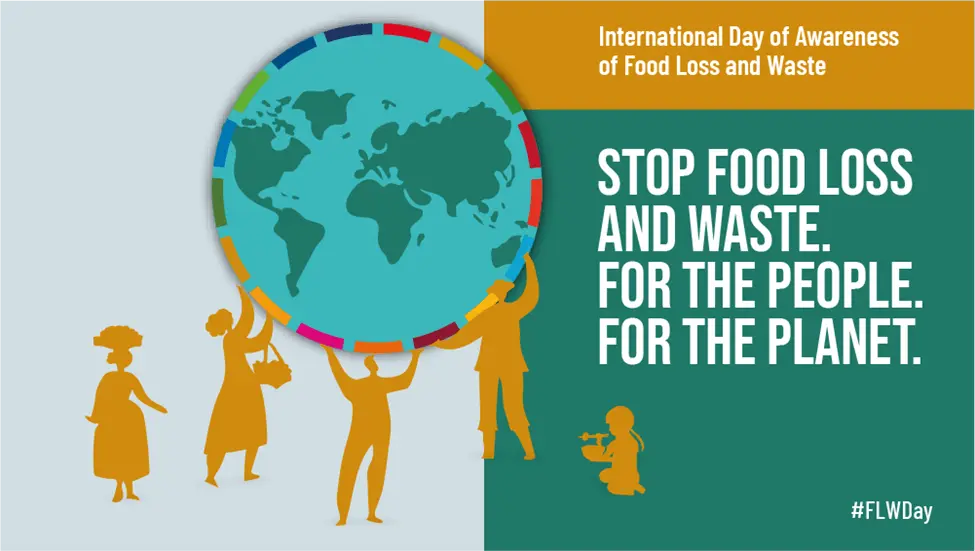Global Focus on Reducing Food Loss and Waste
Why in the news?
The United Nations marked September 29 as International Day of Awareness of Food Loss and Waste, emphasising its role in addressing hunger, reducing waste, and mitigating environmental impacts.
About the Global Concern on Food Loss and Waste (FLW):
- The United Nations has designated September 29 as International Day of Awareness of Food Loss and Waste (FLW), with events organised by the Food and Agriculture Organisation (FAO) and the United Nations Environment Programme (UNEP).
- FAO estimates that 13.2% of global food production is lost between harvest and retail, while UNEP reports 17% is wasted at the retail and consumer levels.
- Together, FLW accounts for 30% of global food production.
- Reducing FLW by 50% could eliminate hunger and lower greenhouse gas emissions by 8-10%.
About International Day of Awareness of Food Loss and Waste (FLW):
- Event: Fifth International Day of Awareness of Food Loss and Waste (IDAFLW) observed on 29th September 2024.
- Theme: ‘Climate Finance for Food Loss and Waste Reduction.’
- Goal: Reduce food loss and waste to mitigate climate change and enhance food security.
- Resource Use: Food loss/waste wastes land, water, energy, and labour.
- Impact: In 2021, 13.2% of food was lost post-harvest; in 2022, 19% was wasted by consumers (FAO/UNEP).
- Climate Impact: Food waste causes 8-10% of agrifood system emissions, contributing to climate change.
- Solutions: Climate finance is crucial for halving global food waste by 2030 (SDG 12.3, GBF).
About Food and Agriculture Organization(FAO):
- FAO Overview: International body focused on food security, hunger, and nutrition globally.
- Director General: Qu Dongyu.
- Specialized UN Agency: Part of the United Nations.
- Establishment Date: October 16, 1945.
- Headquarters: Rome, Italy.
- Parent Organization: United Nations Economic and Social Council.
- Membership: FAO consists of 195 members, including 194 countries and the European Union.
- Mission: Tackles global issues related to food, agriculture, and hunger through policy, partnerships, and programs.
India’s Initiatives to Address Food Security:
- Constitutional Provision: Article 21’s right to life is interpreted to include the right to food and basic necessities.
- Buffer Stock: The Food Corporation of India (FCI) procures food grains at Minimum Support Price (MSP) and supplies them to state governments.
- Public Distribution System (PDS): Distributes essential commodities like wheat, rice, and kerosene, with some states offering additional items.
- National Food Security Act (NFSA), 2013: Covers 75% rural and 50% urban populations with food grains, prioritising Antyodaya Anna Yojana and Priority Households.
Sources Referred:
PIB, The Hindu, Indian Express, Hindustan Times




